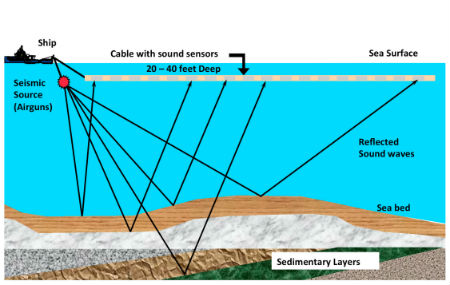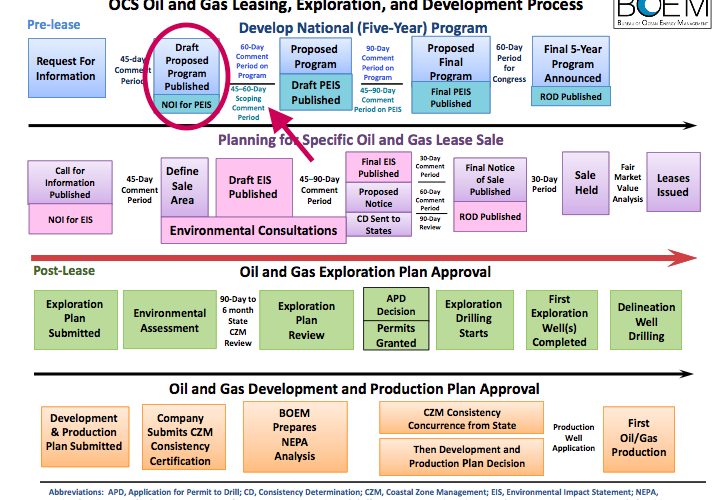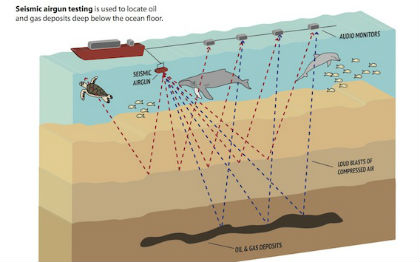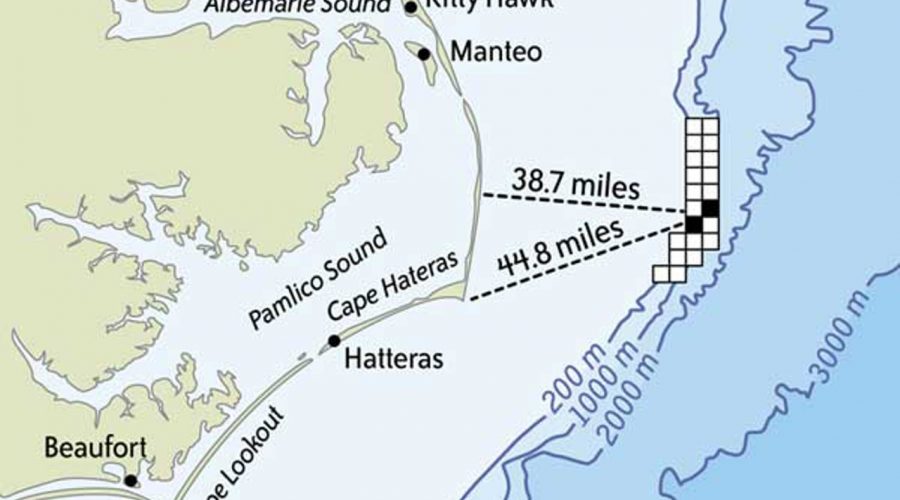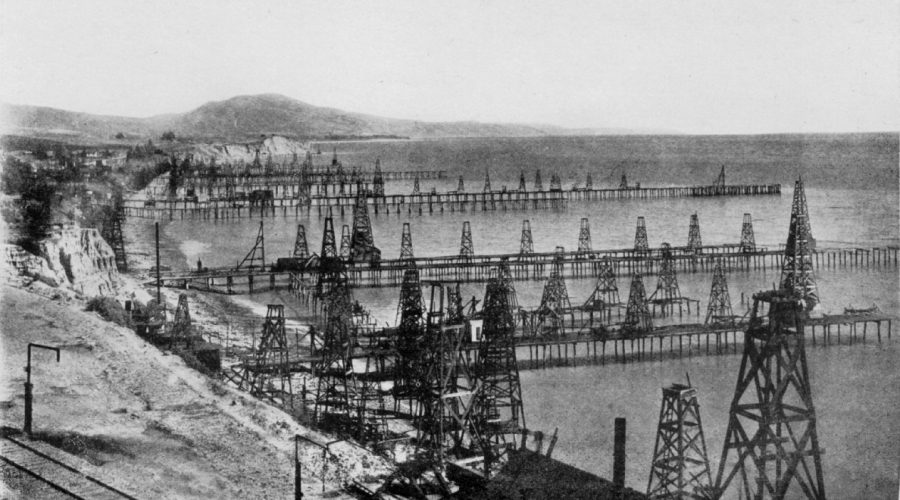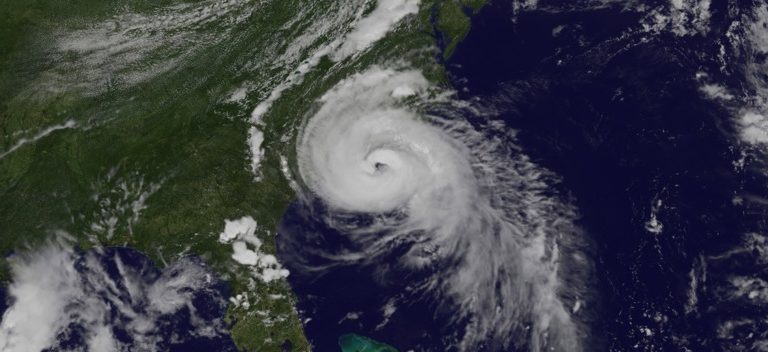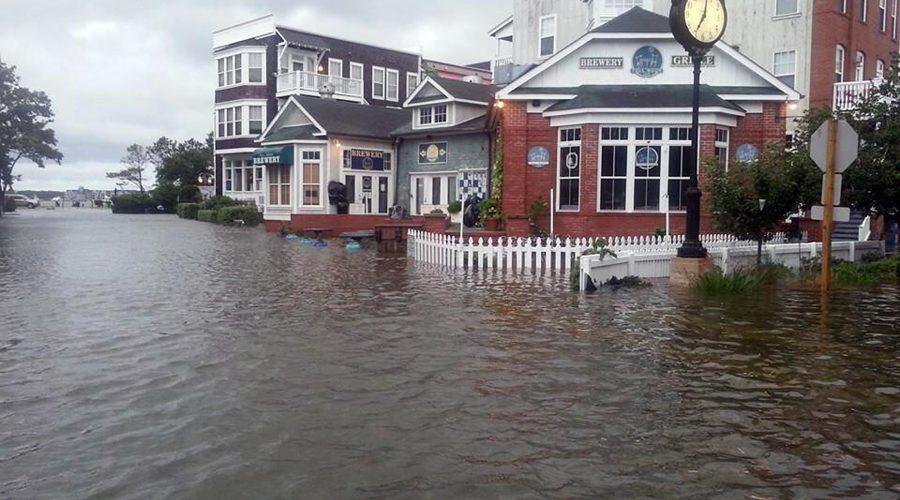The federal government estimates the amount of recoverable oil in the Atlantic at about 4.7 billion barrels. Natural gas stands at 37.5 trillion cubic feet – but nobody knows.
Special Reports
Seismic Tests Not Imminent
The Atlantic is considered a “frontier” for offshore energy exploration as it hasn’t been a target of oil companies since the early 1980s.
Oil Money and N.C. Energy Policy
With the shift of power in Raleigh came a dramatic increase in campaign donations from the oil and gas industry.
New Energy Bills Pave the Way
Timeline of N.C. Energy Bills
Energy Lobby Behind McCrory’s Oil Crusade
An 18-month investigation by Facing South finds that the Outer Continental Shelf Governors Coalition, chaired by Gov. Pat McCrory, is largely run by two groups tied to the oil and gas industry.
Offshore Permitting: Long, Winding Road
The move to drill for oil or natural gas off the N.C. coast has begun but a number of environmental studies and opportunities for public involvement remain.
An Offshore Timeline
In general, it can can take anywhere from seven to 10 years from purchase of the lease to the first production for an offshore well in areas that have existing infrastructure.
Wind: The Other Energy Resource
Three areas off Kitty Hawk and Wilmington are considered the most promising wind energy resource in the mid-Atlantic region.
Seismic Surveys: Advantages and Controversy
Seismic surveys are considered the most accurate way to find petroleum reserves, but they’s also very controversial.
Laws Governing Drilling Off N.C.
Numerous federal and state laws govern the development of oil and natural gas off the N.C. coast. These are the major ones.
A Look Back at the Mobil Fight
A proposal by Mobil Oil in the mid-1980s to drill off the Outer Banks set off a fight that pitted the oil company against residents and the state’s governor.
Dashed Hopes and Dry Holes
The history of oil drilling off the East Coast and in North Carolina has been one of dashed hopes and dry holes.
A Very Brief History of Offshore Drilling
Important dates in offshore drilling history.
Offshore Drilling Series Begins
This is the first of more than 40 stories that we will publish over the next two months on offshore drilling and its potential effects on the N.C. coast.
Below Normal Hurricane Season Expected
Although the 2015 hurricane season got off to an early start with Tropical Storm Ana, forecasters say overall tropical weather activity in the Atlantic will likely be below normal.
Feds to States: Plan for Climate Change or Else
The next governor will have to sign off on an assessment of the risks from climate change or put the state at risk of losing millions of dollars in federal emergency-management grants.


